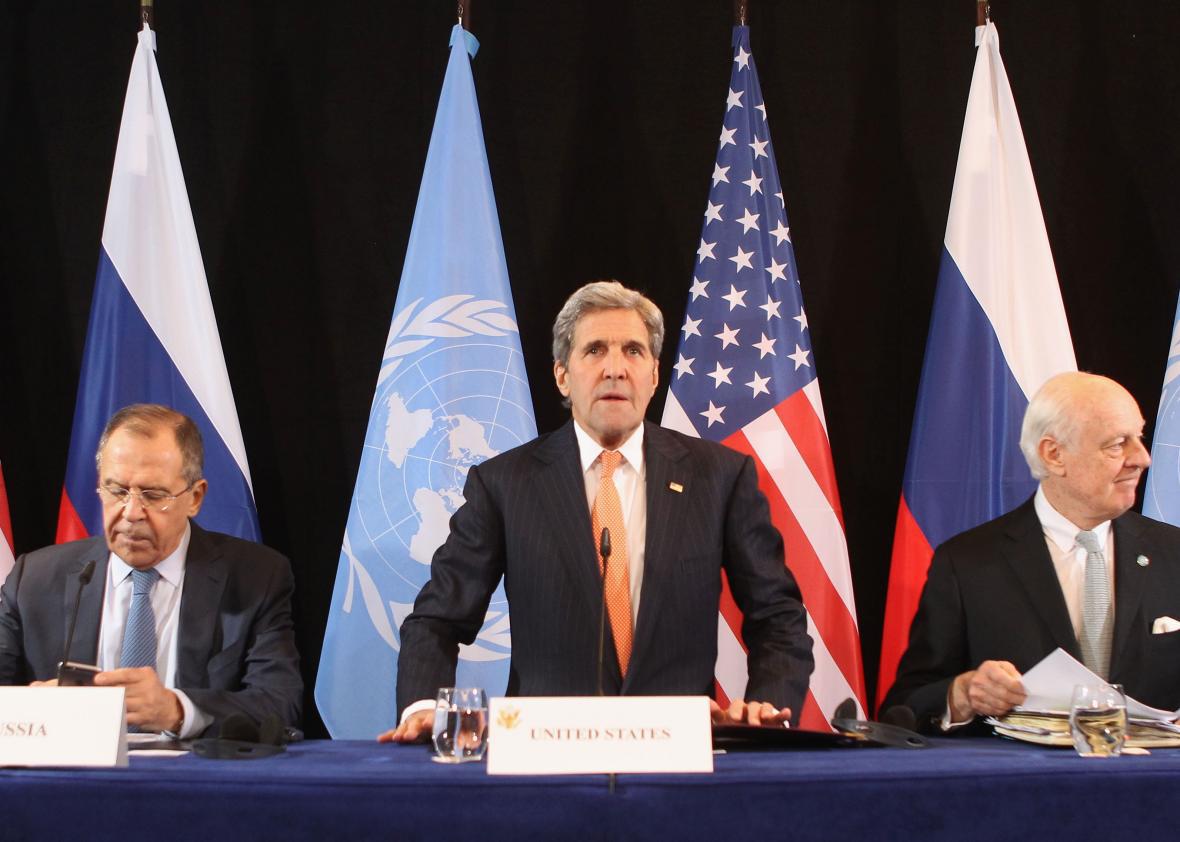Secretary of State John Kerry announced early Friday morning (local time) in Munich that the U.S., Russia, and other powers had agreed to a “nationwide cessation of hostilities” in Syria that would go into effect in a week’s time. The International Syria Support Group also agreed to immediate humanitarian assistance to areas hit hard by the five-year long conflict, some of which have faced widespread starvation. As the deal was being negotiated, hundreds of thousand of residents of already beleaguered Aleppo were facing a similar fate as the Syrian army, backed by Russian airstrikes, was advancing rapidly.
Kerry was cautiously optimistic reiterating after the agreement was announced that it was only a first step. “What we have here are words on paper,” Kerry said. “What we need to see in the next few days are actions on the ground.” The reality on the ground part has always been particularly tough to navigate in Syria where overlapping militant groups, with tangled allegiances, have made intervention difficult. “It is expected but by no means guaranteed that signatories to the agreement will be able to persuade their proxies and allies on the ground, including Assad and the hundreds of opposition groups fighting against him, to honor the terms,” the Washington Post reports.
Russian Foreign Minister Sergei Lavrov said some portion of Russian airstrikes would stop next Friday. The agreement to halt the fighting, it should be noted, excludes the battles currently being waged against ISIS and al-Qaida-affiliated al-Nusra Front. Deciphering which groups are which, even ISIS, is not straightforward and Kerry reiterated at the press conference on the agreement that some Russian airstrikes were targeting groups the West deems moderate forces, not terrorists. Under the agreement, maintaining military pressure on ISIS and al-Nusra will require a much higher degree of consultation, if not coordination, between the U.S. and Russia.
“While humanitarian access is critical to relieving the suffering of millions of Syrians in the short term, a durable and lasting cease-fire will be required if stalled negotiations between Syrian President Bashar Assad’s government and the opposition are to resume on or before the U.N.-set target date of Feb. 25,” the Associated Press notes. “The talks broke down last month before they really started, due largely to gains by Assad’s military with the heavy backing of Russian airstrikes.”
